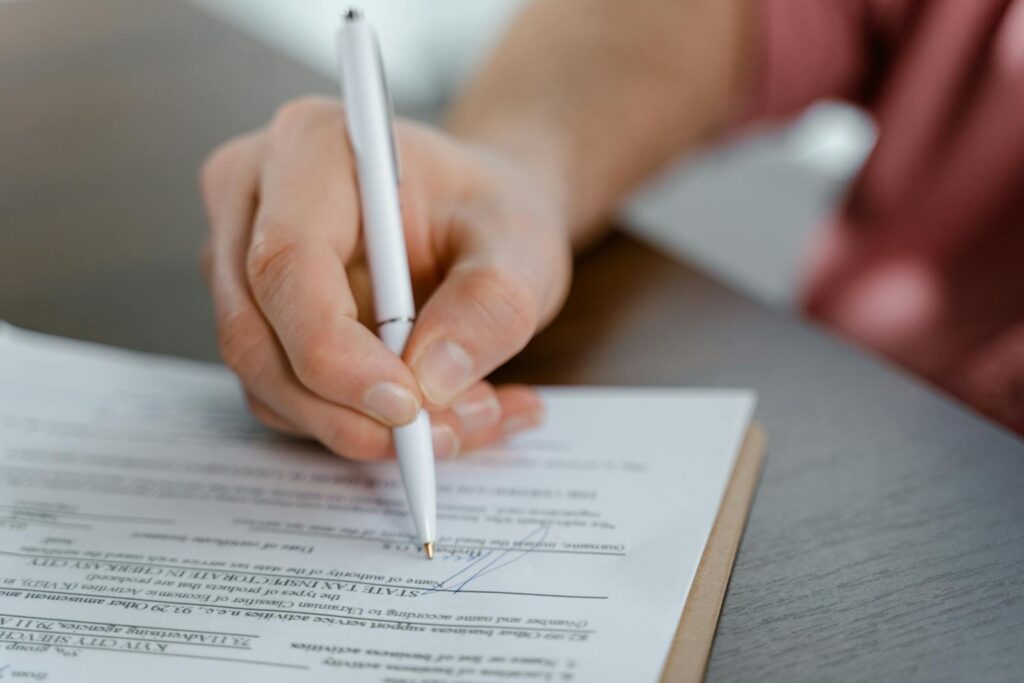At BruegelPC, we’ve often been asked: “Do you really need a lawyer to revoke a power of attorney? It might seem like a simple legal task, but there are hidden complexities. From avoiding costly mistakes to ensuring every legal requirement is met, the right guidance can make a huge difference. Let’s dive into why having an experienced lawyer by your side can ensure a smooth transition.
As stated in American Bar Association guidelines, you do not need a lawyer to revoke a power of attorney. You can simply create a written statement revoking it and provide a copy to any involved parties. However, legal advice may still be helpful to ensure all steps are correctly followed.
What is a Power of Attorney?
A power of attorney grants someone the legal authority to manage another person’s financial or legal affairs, even enabling them to buy or sell property on their behalf.
In other words, a power of attorney allows someone you trust to make decisions for you if you can’t. This can include managing your property, handling your finances, or making healthcare choices, based on what is written in the document. You can limit the power of attorney to specific tasks or make it broad to cover many decisions.
Predominantly, it’s important to choose a trustworthy person as your agent to protect your best interests. You can change or cancel the power of attorney anytime as long as you are mentally competent. Having a power of attorney is useful if you can’t make decisions because of illness or other reasons.
To make sure the document is done correctly and follows the law, you should talk to a lawyer.
Reasons to Revoke a Power of Attorney
A Power of Attorney can be revoked if the principal suspects the agent of financial mismanagement or abuse.
When it comes down to it, if a person can make their own decisions, they might not need their Power of Attorney (PoA) anymore. If the agent (the person given the PoA) is not acting in the best interests of the person, or misusing their power, the PoA should be canceled. Poor handling of money or property by the agent is another good reason to cancel it.
To break it down, if the agent can’t or won’t do their job right, canceling the PoA might be needed. Also, if the relationship between the person and the agent gets worse, it might be best to cancel the PoA to protect the person’s well-being. It’s important to think carefully about why you want to cancel a PoA and follow the right legal steps to make it official. Talking to a lawyer can help you through this.
Steps to Revoke a Power of Attorney
As we have already covered, you need to draft a clear written revocation document to officially cancel a power of attorney.
By and large, to cancel a power of attorney, you need to write a document that includes:
- Your name.
- The name of the agent you chose.
- The date you made the power of attorney.
- A statement that you’re canceling the agent’s authority.
Sign and date this cancellation document in front of a notary public to make sure it’s legally valid. Give a copy of this document to your agent and to anyone else who has been dealing with the power of attorney.
By definition, make sure to tell all relevant parties about the cancellation quickly and clearly so they know your wishes. If you’re unsure about any part of this process, it’s a good idea to talk to a lawyer. Once you cancel the power of attorney, your agent can no longer make decisions for you. So, make sure you take the necessary steps to manage your affairs properly after the cancellation.
Do You Need a Lawyer for Revocation?
Recalling what we discussed hiring a lawyer for revocation ensures you navigate complex legal processes and potentially protect your rights more effectively.
At the simplest level, a lawyer understands the law and can help you cancel something legally. They can explain your rights and make sure everything is done correctly. A lawyer can help you collect evidence, fill out forms, and speak for you in court if needed.
So to speak, they know how to handle complicated legal matters and will protect your rights. Also, a lawyer can talk to the other side to work out a fair deal. In general, having a lawyer with you during this process can give you the support and knowledge you need to handle the legal system smoothly.
Legal Consequences of Revocation

Bringing together earlier ideas, revocation can lead to a range of legal consequences, varying significantly with the surrounding context.
Honestly, in simple terms, revocation means canceling something that was previously decided or granted. In the legal world, this can mean canceling a will, a contract, a license, or even a power of attorney.
When something is revoked, it ends the rights and responsibilities that came with it. For instance, if a will is revoked, the instructions in that will are no longer valid, and the property will be divided according to the state’s default rules. Likewise, if a contract is revoked, both parties are freed from their commitments under that contract, but unresolved issues may still need to be settled legally.
In other words, typically, there are rules to follow when revoking a legal document. For example, revoking a will might need to be done in writing and signed with witnesses, while canceling a contract might require giving formal notice to the other party.
Not following the correct steps to revoke a document can lead to legal problems, such as disputes or claims of breaching the contract. So, it’s very important to get legal advice when thinking about canceling a legal document to make sure it’s done properly and according to the law.
The Final Analysis
Based on what we observed, in conclusion, although it is not necessary to have a lawyer to revoke power of attorney, seeking legal guidance can ensure that the process is done correctly and all legal requirements are met.
What BruegelPC is wanting you to know is, however, individuals can choose to revoke power of attorney on their own by following the proper steps outlined in their jurisdiction. Ultimately, the decision to involve a lawyer depends on the complexity of the situation and individual preferences.
References
Here is the literature that I was using for drafting this article:
- “Power of Attorney Handbook” by Ralph E. Warner, Nolo
- “The Complete Power of Attorney Guide for Consumers and Small Businesses: Everything You Need to Know Explained Simply” by Linda Ashar, Atlantic Publishing Group Inc.
- “Legal Guide for Starting & Running a Small Business” by Fred S. Steingold, NOLO

